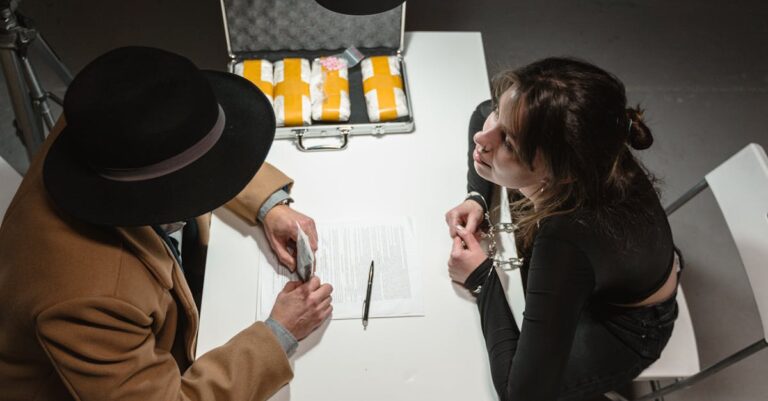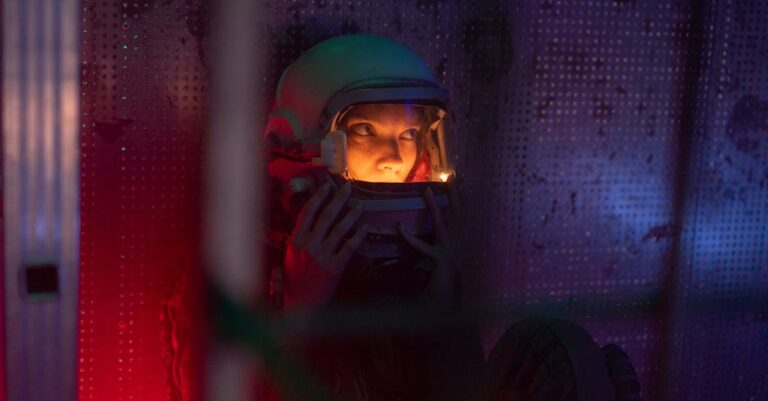
The first thing she noticed was the smell—metallic, sterile, and cloying, like rusted wires and antiseptic. It clung to her nostrils, sharp and unyielding, as if the air itself had been scrubbed raw. She blinked, her vision swimming, and found herself lying on a cold slab of steel. The ceiling above was a grid of flickering fluorescent lights, casting jagged shadows across the room. A single door stood at the far end, its surface smooth and featureless, like a blank page waiting to be written on.
“You’re awake,” a voice said. It was low, measured, and devoid of warmth. She turned her head slowly, her neck stiff, and saw a man in a white coat standing near the door. His face was sharp-featured, his eyes dark and unblinking. He didn’t introduce himself.
She tried to sit up, but her limbs felt heavy, as though weighed down by invisible chains. “Where am I?” Her voice came out hoarse, unfamiliar. The man tilted his head, studying her like a specimen under a microscope.
“You’re where you need to be,” he said. “Do you remember anything?”
She frowned, her mind a fog of disconnected images—flashes of light, the sound of a heartbeat, something cold pressing against her temple. “No,” she said. “I don’t.”
The man’s expression didn’t change. “That’s expected. You’ll get your answers soon enough.”
The room felt smaller now, the air tighter. She glanced around, taking in the bare walls, the rows of identical slabs, the faint hum of machinery in the distance. It was a laboratory, but not one she recognized. A sense of unease coiled in her stomach.
“What’s happening to me?” she asked, her voice rising slightly.
The man didn’t answer immediately. Instead, he turned and walked toward the door. “Come with me,” he said. “We have work to do.”
She hesitated, then pushed herself upright. Her legs wobbled, but she managed to stand. The man waited, his posture rigid, as if expecting resistance. She followed him out into a corridor that stretched endlessly in both directions, its walls lined with doors identical to the one they’d left. The floor was cold beneath her bare feet.
“What’s your name?” the man asked, not looking at her.
“I don’t know,” she said. “I can’t remember.”
He stopped at a door and pulled a key from his coat pocket. “You’ll find out soon,” he said, sliding the key into the lock. “But first, we need to test you.”
The door swung open, revealing a room lit by a single overhead bulb. A chair sat in the center, its metal frame gleaming under the light. The man gestured for her to sit. She did, her hands trembling as she gripped the armrests.
“This is the first step,” he said. “You’ll be asked questions. Answer them truthfully.”
She nodded, though her mind raced with questions of her own. Why couldn’t she remember? Who was she? And why did the air in this place feel so wrong, like it was holding its breath?
The man stepped back as a woman entered the room, her face hidden behind a mask. She wore the same white coat as the man, but her presence felt different—calmer, more deliberate. She sat across from her and placed a device on the table between them. It looked like a small black box with wires trailing from it.
“We’ll begin,” the woman said, her voice soft but firm. “What is your name?”
She opened her mouth to answer, but the words didn’t come. Her mind was a void, empty of any identity. She closed her eyes, trying to recall something—anything—but the emptiness remained.
“I don’t know,” she said finally, her voice barely above a whisper.
The woman nodded, as if this was expected. “That’s okay. We’ll get there.”
The man stepped forward, his expression unreadable. “We need to proceed.” He placed the black box against her temple, and the room went silent. A low hum filled her ears, and for a moment, she felt as though she were floating, unmoored from her body.
Then the images came—fragmented, chaotic. A city at night, its lights blinking like dying stars. A voice speaking in a language she didn’t understand. A door opening, revealing a room filled with mirrors. And then, a memory that struck her like a blade: a woman with dark hair and a scar across her cheek, holding her hand and saying, “Don’t let them take it.”
She gasped, pulling away from the device. The man and woman exchanged a glance, their expressions unreadable.
“What was that?” she demanded, her heart pounding.
The woman leaned forward. “That’s what we’re here to find out,” she said. “But first, you need to trust us.”
“Trust you?” she repeated, her voice laced with disbelief. “You’ve taken my memories.”
The man spoke again, his tone calm but firm. “We’re trying to help you. This experiment is about recovering what was lost. But it requires your cooperation.”
She looked between them, her mind churning. The woman’s words felt like a promise, but the man’s presence was a warning. She didn’t know who to believe, but one thing was clear: she couldn’t stay here, trapped in this limbo of forgotten truths.
“I need answers,” she said, her voice steady now. “And I’m not leaving until I get them.”
The woman studied her for a long moment, then nodded. “Then we’ll begin,” she said. “But be prepared for what you might find.”
The man stepped back, his gaze lingering on her as if weighing her worth. “We’ll start with the first question,” he said. “What do you remember about the night you were brought here?”
She closed her eyes, forcing herself to think. The memory was there, just beyond reach, a shadow in the dark. She reached for it, and the images returned—flickering, incomplete, but real. A car accident. Sirens. A face she couldn’t see. And then, nothing.
“I don’t remember much,” she said slowly. “Just fragments.”
The woman nodded, her expression thoughtful. “That’s normal. The process will take time.”
The man spoke again, his voice colder now. “But time is not on our side. The longer we wait, the more the memories will fade.”
She looked at him, her eyes narrowing. “And what happens if I don’t cooperate?”
He didn’t answer immediately. Instead, he turned and walked toward the door. “You’ll find out,” he said over his shoulder. “But don’t think you have a choice.”
The woman stood, her expression still calm. “We’re not here to hurt you,” she said. “We’re here to help.”
“Then why keep me in the dark?” she challenged.
The woman hesitated, then sighed. “Because some truths are dangerous. And we don’t want you to lose yourself in them.”
The words hung in the air, heavy with meaning. She didn’t know if they were a warning or a promise, but one thing was clear: the answers she sought would come at a cost. And she wasn’t sure she was ready for what that meant.
But as she sat in the cold chair, the hum of the machine still echoing in her ears, she knew one thing for certain—she would find the truth, no matter what it took.


